The Hub is comprised of the BVA Program Director and Associate Director, along with a team of professional advisors, academics and administrators working together to advance the agendas and interests of the BVA under the general direction of the Steering Committee. The Hub coordinates the network, assists with inter-campus communication, network administration, proposal writing and other centralized project support. The Hub also facilitates the BVA’s collaboration with other organizations and helps to disseminate its research findings.
Members of the Hub
Nancy Turner
University of Saskatchewan
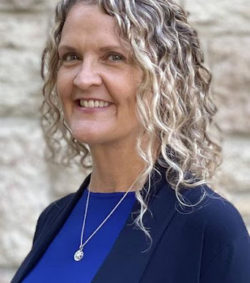
Nancy Turner is Senior Director, Teaching and Learning Enhancement at the University of Saskatchewan. Her role as Senior Director involves working in partnership with colleges/schools and other units to support the ongoing enhancement of learning and teaching, the development of positive student learning experiences and the provision of quality academic and professional development that enables both of these at the university. Nancy contributes to strategic developments in teaching and learning policy and practice and leads related institutional change initiatives at the institution. She also provides strategic oversight and leadership to several specialist units; Gwenna Moss Centre for Teaching and Learning, Access and Equity Services, Distance Education Unit, Media Production and Career Services. Nancy returned to Canada in 2013 after a decade working in London England. Her previous roles include Acting Dean and Associate Dean of Learning, Teaching and Enhancement at the University of the Arts London and Director of Educational Development at Royal Holloway, University of London.
Nancy’s research is focused on change in and development of teaching and learning. Her research has particularly focused on the department as a key site of practice development, institutional policy implementation, and informal and professional learning. Nancy holds a PhD in Educational Research from Lancaster University, UK, and MSc and BSc degrees in Kinesiology and Health Studies.
Dea Follmer
University of Kansas
Director
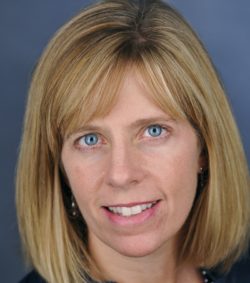
Andrea (“Dea”) Follmer, is Professor of Psychology, Director of the Center for Teaching Excellence (CTE) and Gautt Teaching Scholar at the University of Kansas (KU). Her research in psychology focuses on memory and cognitive development. Her work in higher education envisions and explores strategies for advancing transformed teaching and learning, informed by cognitive and developmental science. Supported by grants from the Spencer, Teagle, and National Science Foundations, the Association of American Universities, and the Howard Hughes Medical Institute, much of her work has examined strategies for improving learning and student development in diverse populations of students, for assessing learning, and for using the evidence to improve education. She has led numerous university-wide educational improvement initiatives at KU.
Dea serves as Director of the BVA and is principle investigator of the BVA’s TRESTLE project, promoting STEM course transformation and improved learning through department-embedded expertise and community building. She also leads the KU effort on TEval, another NSF-funded collaboration that aims to transform the evaluation of teaching in higher education through the use of a multi-dimensional, multi-source framework.
Emily Miller
Association of American Universities (AAU)
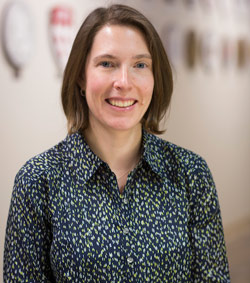
Emily Miller joined the Association of American Universities (AAU) in 2012 as the project manager for AAU’s Undergraduate STEM Education Initiative. Previously she worked with the Association for Community College Trustees (ACCT) as a research and curriculum specialist. During her graduate studies, Miller worked on grant projects focused on international partnerships for higher education development as well as a series of programs aimed at addressing the opportunities, changes, and challenges occurring in faculty careers and the academic workplace. In addition, she collaborated with the Association of Governing Boards of Universities and Colleges (AGB) with their board education and consulting services as well as on research examining faculty engagement in institutional governance.
Miller was an assistant director of career services at Tufts University and worked in alumni relations at Harvard Business School. Prior to working in higher education, she worked in government contracts litigation with Wiley, Rein & Fielding, LLP.
Miller earned her PhD in Higher, Adult, and Lifelong Education from Michigan State University; MA in Education Policy and Management from Harvard Graduate School of Education; and BA, cum laude and with honors, in Political Science from Gettysburg College.
Miller has published on the topics of post-secondary institutional leadership, specifically as it relates to governance and administration; organizational change in universities and colleges; and higher education policy. She is also a professional lecturer of higher education at The George Washington University and is an active member of the Association for the Study of Higher Education.
George Rehrey
Indiana University Bloomington
George Rehrey directs the Scholarship of Teaching and Learning Program at Indiana University’s Bloomington campus (IUB), leading efforts to fully integrate and institutionalize a program with a 16-year history of success. He is also a Principal Instructional Consultant with IUB’s Center for Innovative Teaching and Learning, where he supports instructors of all ranks as they transform their courses, conduct classroom research, collect evidence of student learning, form communities of inquiry, and disseminate their work locally, nationally, and internationally. This past year George played an instrumental role in the design and implementation of a new program review process now required of all 44 departments within the College of Arts and Sciences. George is a co-founding member of the Institute for Curriculum and Campus Internationalization as well as the Internationalization Collaborative Across Bloomington (ICAB), a Title VI funded project that brings faculty together from IUB and Ivy Tech Community Colleges. ICAB participants work collectively on the integration of global student learning outcomes within curricula. George’s current SOTL research includes the learning of geological time, the problems of academic integrity as a cultural phenomenon in computer science courses, the effect of backward course design upon student engagement and, the influence that social and economic reward systems may have upon academic development programs.
Mary Deane Sorcinelli
University of Massachusetts Amherst
Senior Scholar
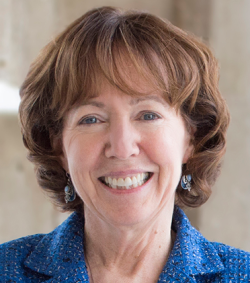
Mary Deane Sorcinelli is co-PI, Undergraduate STEM Education Initiative, Association of American Universities (AAU) and senior fellow, Center for Teaching & Learning, University of Massachusetts Amherst. Previous roles include senior scholar, Mount Holyoke College, associate provost, professor emeritus, and founding director, Center for Teaching & Faculty Development, University of Massachusetts Amherst, and director, Office of Faculty Development, Indiana University Bloomington. Her research is in the areas of faculty professional development, mentoring, scholarly writing, improvement of teaching and learning, and the role of teaching centers in fostering 21st century faculty learning. She has published over 100 articles, book chapters and books, co-authoring A Center for Teaching and Learning Matrix(2019), Institutional commitment to teaching excellence(2017), Faculty development in the age of evidence(2016), and Creating the future of faculty development (2006). She served as president, POD Network in Higher Education, senior scholar, Association for Higher Education (AAHE), and has worked in 15 countries, most recently as 2019 Educator-in-Residence, National University of Singapore and 2018 Fulbright Specialist, Education City, Qatar. Her doctorate in educational policy is from University of Massachusetts Amherst. She serves on the BVA Hub and the external advisory board of TEval.
Lorne Whitehead
University of British Columbia
Past Director

Lorne A. Whitehead is UBC’s Special Advisor on Entrepreneurship, Innovation and Research and a professor in the Department of Physics and Astronomy. Dr. Whitehead has held a number of administrative positions including Associate Dean, Dean pro tem, VP Academic & Provost and Leader of Education Innovation. In these roles a considerable portion of his effort has focused on applying the methodology of innovation to the improvement of teaching and learning. Dr. Whitehead received a Ph.D. in Applied Optics from UBC and has considerable experience in technological, business and administrative innovation. From 1983 to 1993 he served as CEO of TIR Systems, a UBC spin-off company that grew to 200 employees before being purchased by the Philips corporation. Since joining UBC in 1994, his scientific research has involved novel applications of the optical, electrical and mechanical properties of micro-structured surfaces, a field in which he holds more than 100 patents. His technology has produced seven university spin-off companies and numerous licensing agreements, and can be found in many common computer screens and televisions.
Brita Harrison Brooke
Program Manager
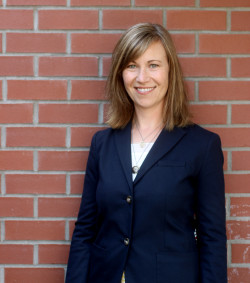
Brita is the Program Manager for the BVA and is also a strategic communications and public relations consultant. She has a focus on post-secondary education, having worked for several years at both the University of British Columbia and Capilano University. She holds an MSc in Planning and Development from University College London, UK, a BAC in Public Relations from Mount Royal University and a BA in History from the University of Calgary. She has worked in the public, private and not-for-profit sectors delivering strategic communications advice and tactics. Brita is a Director of the Take a Hike Youth at Risk Foundation and a member of the Canadian Public Relations Society (CPRS).